Learn about meta influencers and the social media marketing they play. With Instagram’s AI influencers, discover the future of influencer marketing. Discover the top 10 meta influencers and acquire insightful knowledge to enhance your influencer marketing plan. With the help of this thorough guide, learn about the benefits and drawbacks as well as case studies, tools, and resources. Excited? Let’s begin!
Table of Contents
Introduction
In today’s digital environment, influencer marketing has emerged as a crucial element of any effective marketing campaign. As social media platforms have risen in popularity, so has the use of influencers to market goods and services. The term “meta influencers” refers to a new development in the realm of influencer marketing. With the development of AI influencers on Instagram, meta creators are emerging everywhere. But before we go into detail about meta influencers, let’s understand the concept of influencers and metaverse.
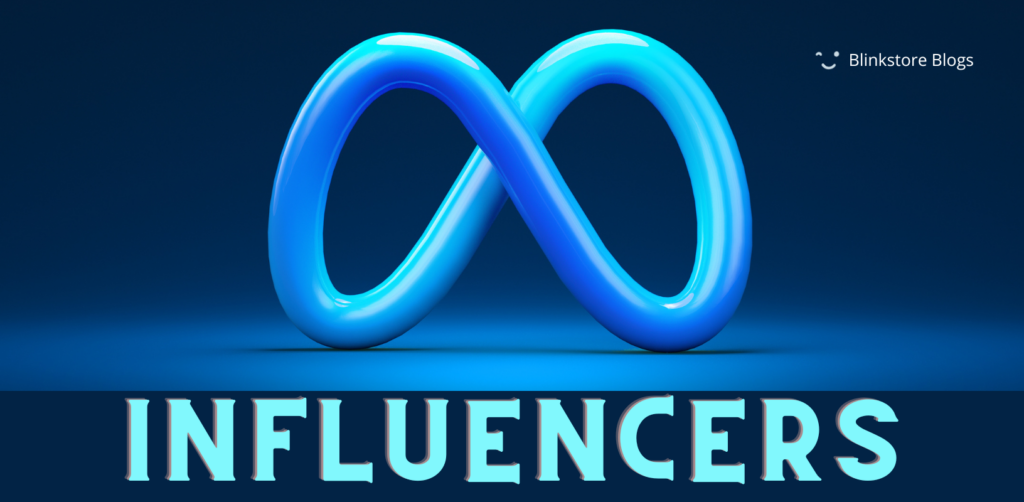
Instagram Influencers
An Instagram influencer is a user who has amassed a sizable following through their posts and has the ability to influence the attitudes and actions of their followers. They are often people who have developed a loyal following of engaged followers who look to them for inspiration and guidance in a specific area, such as fashion, beauty, fitness, travel, or food. Instagram influencers frequently work with brands to market their goods or services to their audience. They can range from micro-influencers with a few thousand followers to mega-influencers with millions of followers.
Concept of Metaverse
The Metaverse is a virtual world where people can communicate with each other in a computer-generated environment in real time. Users can partake in a range of immersive activities in this shared virtual community environment that is generated by the fusion of physical and virtual reality. The Metaverse is a collection of platforms and technologies that allow users to access and interact with the virtual world, rather than being restricted to a single platform or technology.
Although the idea of the Metaverse is still in its infancy, it has drawn considerable attention as a result of the expanding popularity of virtual and augmented reality technologies, gaming, and the development of NFTs (non-fungible tokens). The gaming, entertainment, education, e-commerce, and social media industries, among others, could all be completely transformed by the metaverse.
Rise of Meta Influencers
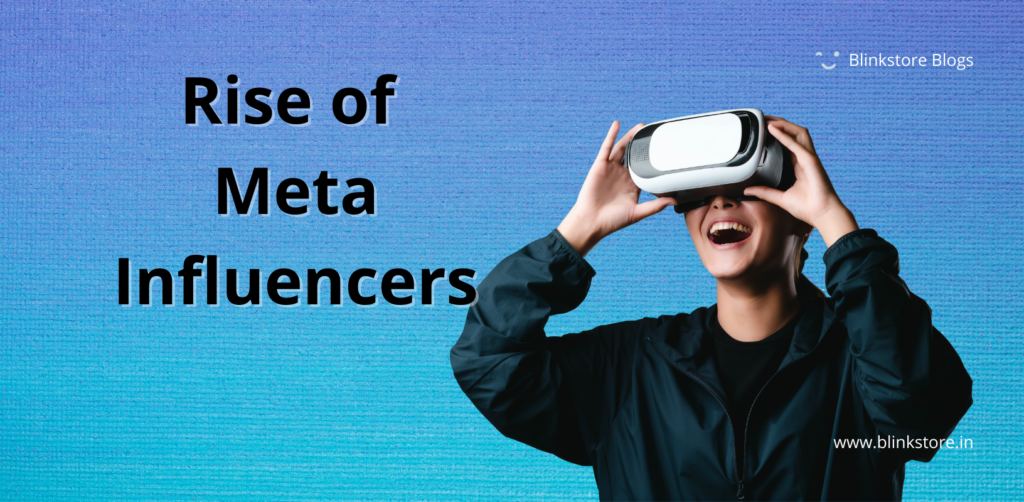
The idea of the metaverse, which had been around for a while, received a boost in October 2021 when Facebook changed its name to Meta. It was one of the biggest technological advances and will be viewed as a precursor to the inevitable: a world interconnected in the metaverse. So it makes sense that a lot of people and fashion firms are embracing virtual reality swiftly and making money off of it before others. Influencers in the metaverse are among them.
Meta Influencers have developed a sizable fan base and a solid reputation in their specialised fields. They use their knowledge and power to support other influencers in growing and succeeding, in contrast to typical influencers who concentrate on developing their brands. By acting as mentors, counsellors, and connections, meta influencers have a special place in the ecosystem of influencer marketing. They make use of their expertise and experience to assist other influencers in refining their craft, enhancing their output, and expanding their audience.
Additionally, they offer advice on interacting with brands, settling disputes, and navigating the influencer marketing environment. Because of their capacity to collaborate with other influencers and develop more effective campaigns, meta influencers are frequently sought after by brands and agencies. They can assist brands in finding the appropriate influencers for their campaigns, managing the connections with those influencers, and making sure that campaigns are carried out successfully.
Top 10 Popular Meta Influencers
Here is the list of the popular metaverse influencers who made it to the top of the table. Have a look:
1. Kyraonig

Johanna Jaskowska, a 3D artist, created the kyra meta influencer in 2019. She has worked with several large businesses in the fashion and cosmetics sectors, and her particular aesthetic blends elements of high fashion with anime. Kyra has a sizable social media following and has been in advertisements for companies like Sephora and Burberry. Kyra is a popular digital influencer girl.
2. Lil Miquela
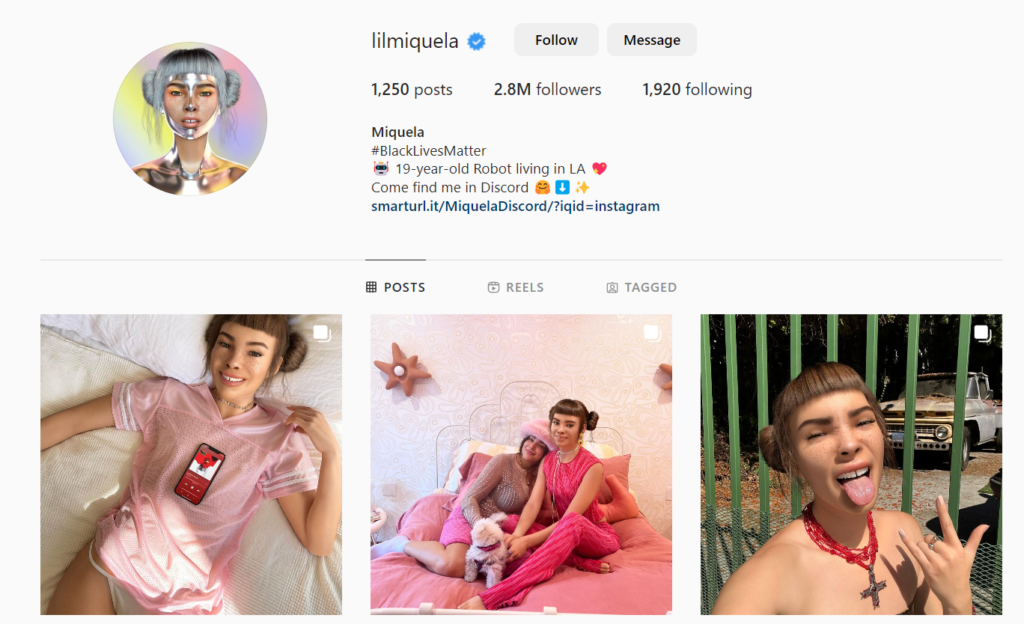
With more than 3 million Instagram followers, Lil Miquela is one of the most well-known virtual influencers in the world. She was developed by the Los Angeles-based firm Brud in 2016, and since then, she has gained notoriety for her fashion-forward sense of style and her capacity to emotionally engage with her audience. Lil Miquela has appeared in advertisements for companies such as Prada, Calvin Klein, and Samsung, and she was included in a list of the 25 most important persons online by Time magazine.
3. Lu do Magalu
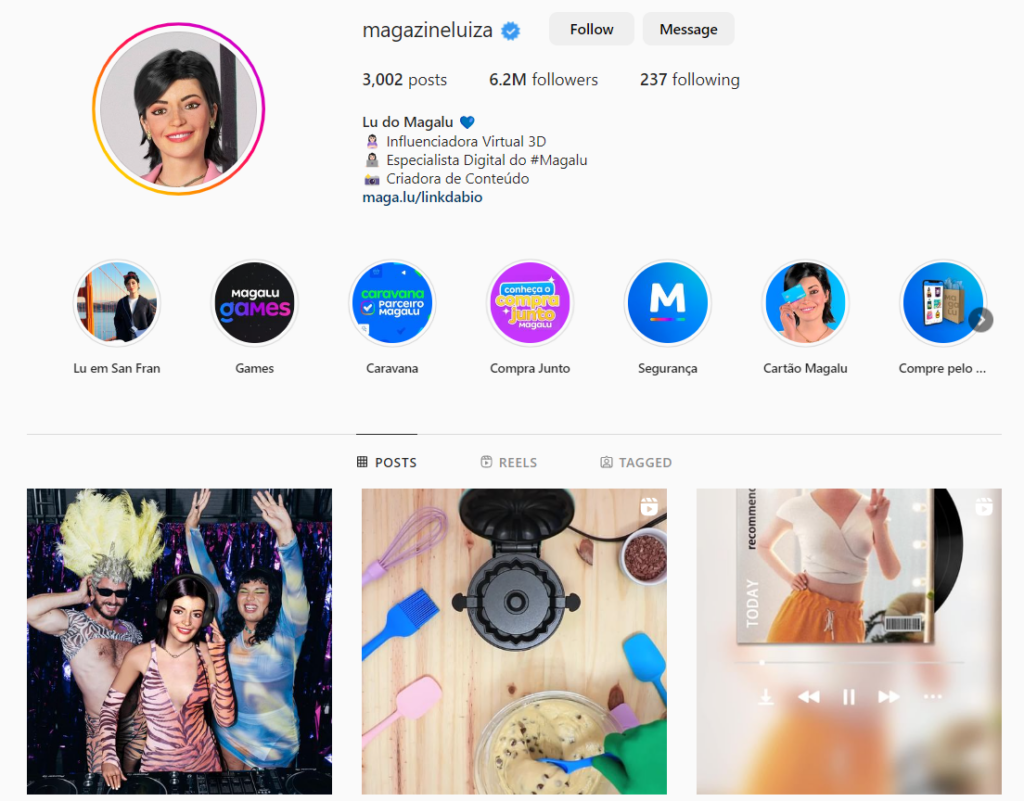
Lu does Magalu was developed by the online retailer Magazine Luiza in 2019. She has a sizable social media with a following of more than 6 million and is intended to advertise the business’s goods and services. Because of her warm and personable demeanour, Lu da Magalu has appeared in advertisements for a variety of products in retail and online marketplaces.
4. Shudu
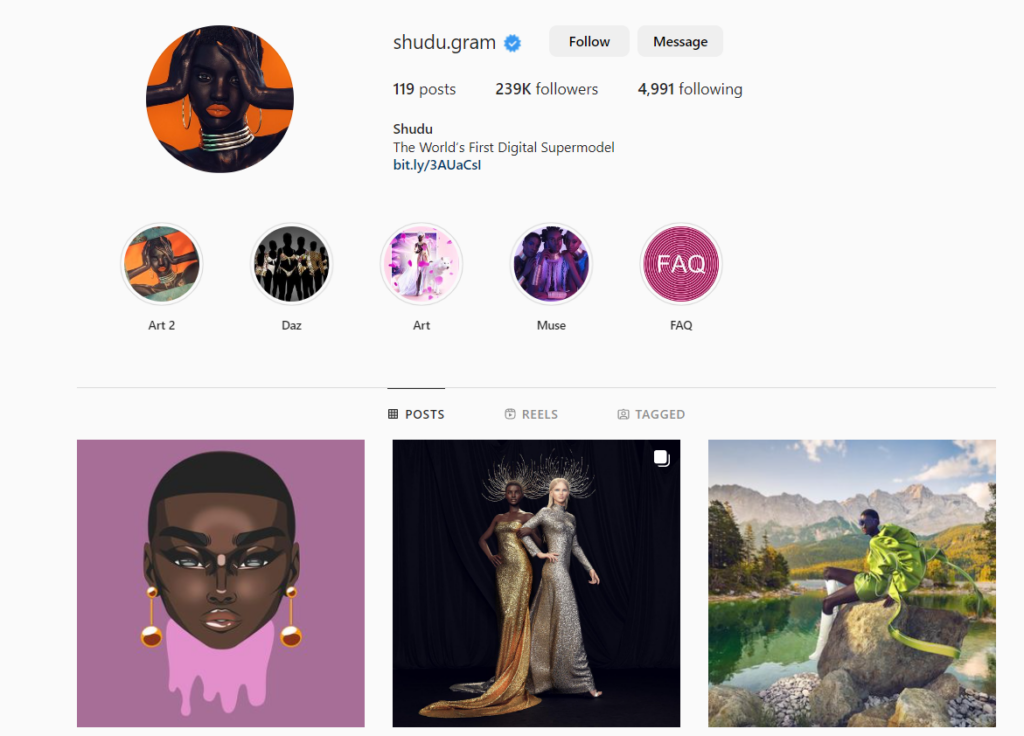
Shudu was created by British photographer Cameron-James Wilson in 2017. She has a strikingly realistic appearance, and she has been featured in campaigns for major brands like Balmain and Fenty Beauty. Shudu has been praised for her ability to challenge traditional beauty standards and for her role in promoting greater diversity and inclusivity in the fashion and beauty industries.
5. Barbie
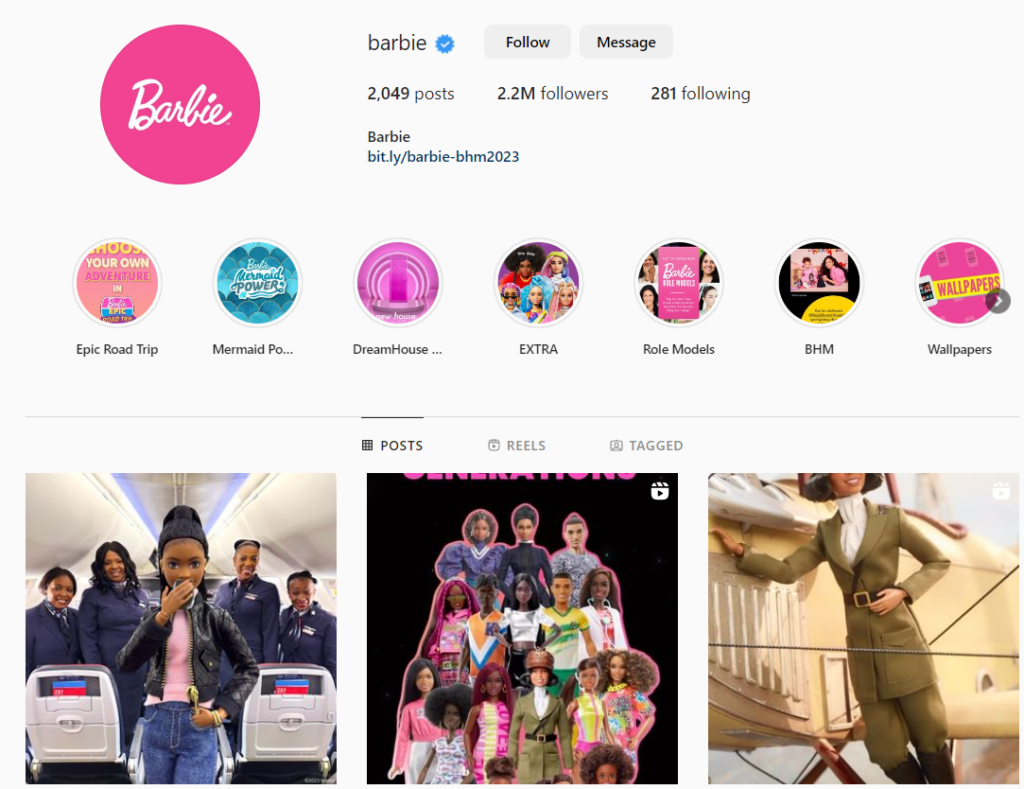
One of the most recognisable dolls in the world, Barbie has been a mainstay of the toy business for more than 60 years. With a sizable online following, Barbie has developed into a virtual influencer in recent years. The virtual Barbie is made to appeal to a younger audience, and she has appeared in advertisements for numerous firms in the fashion, beauty, and lifestyle sectors.
6. Rozy Oh
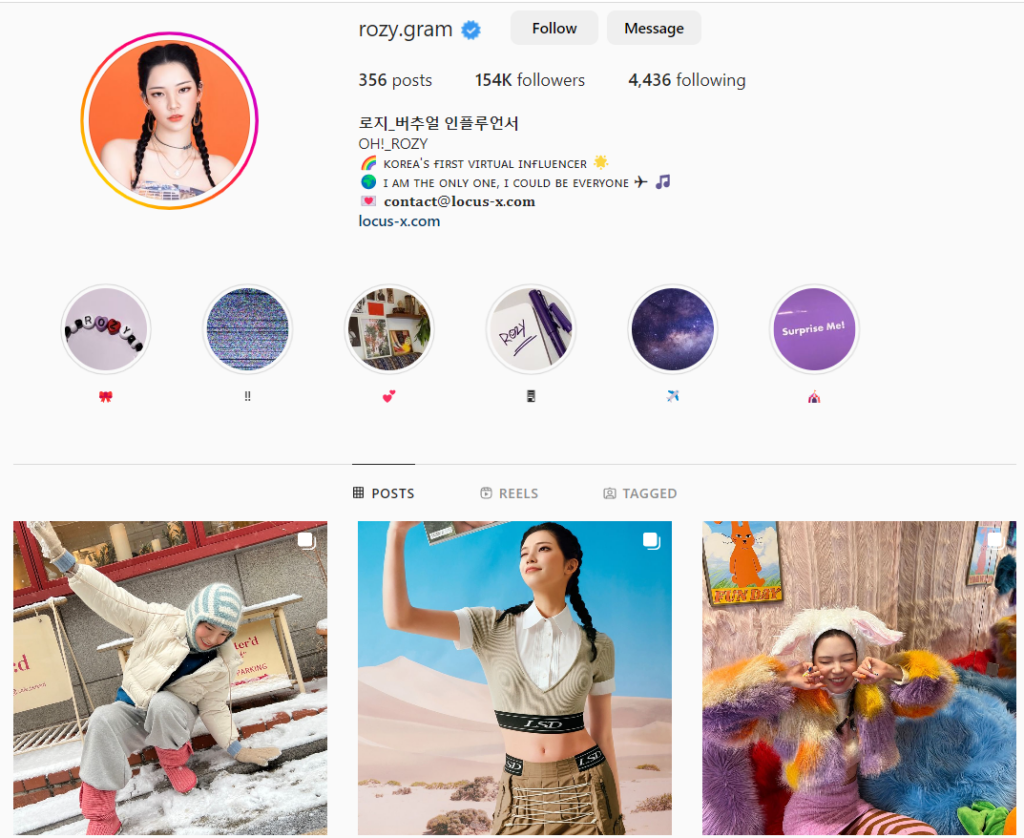
A virtual influencer named Rozy Oh was developed in 2020 by the Bluehole media corporation in South Korea. She has appeared in advertisements for companies like Puma and Converse and has a distinctive aesthetic that combines aspects of anime and K-pop. Rozy Oh has received appreciation for both her role in advancing greater diversity and inclusivity in the fashion and beauty industry as well as her capacity to emotionally connect with her fans.
7. Guggimon
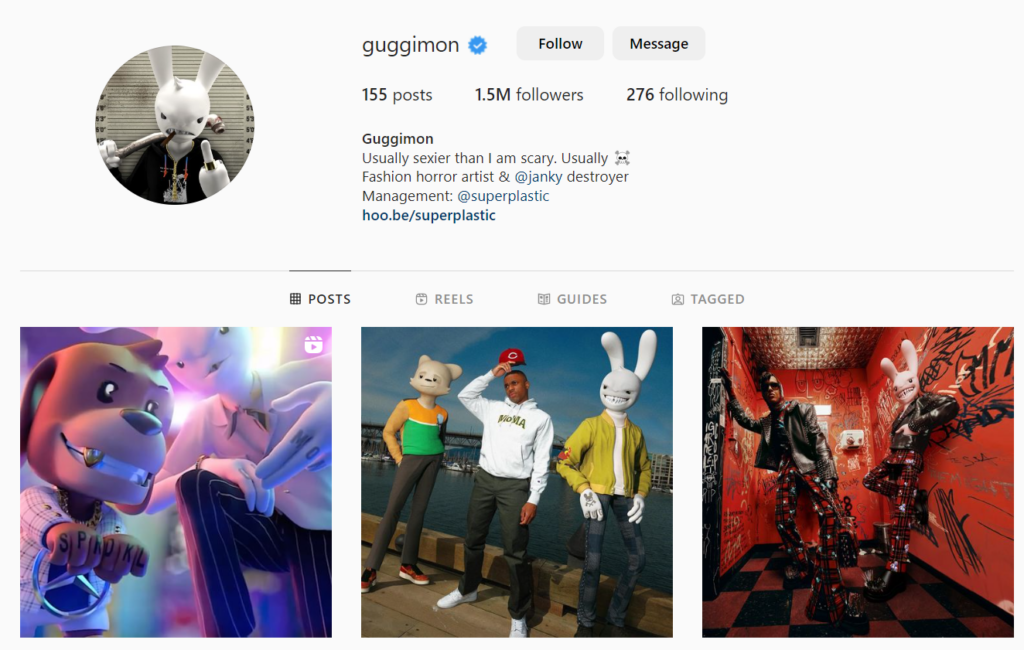
Streetwear company Superplastic launched the virtual influencer Guggimon in 2019. He has appeared in advertisements for companies like Adidas and Vans because of his unusual look, which combines pop art and streetwear themes. Guggimon has a large social media following and is well-recognised for his irreverent and humorous demeanour.
8. Lucy

In 2020, the digital marketing firm Yumi launched Lucy, a virtual influencer. She has been used in advertisements for companies like Coca-Cola and Benefit Cosmetics because of her cheerful, approachable nature and realistic appearance. In addition to being commended for her role in advancing greater diversity and inclusivity in the fashion and beauty industry, Lucy has also received accolades for her capacity to emotionally connect with her followers.
9. Thalasya

Thalasya is renowned for her outstanding looks and distinctive fashion sense. This character is created by artist and fashion designer Tomomi Itakura. She frequently sports brightly coloured attire and accessories that express her lively and whimsical nature. Thalasya, who has more than 38,000 Instagram followers, has collaborated with a range of firms, including cosmetics and clothing manufacturers.
10. Bermuda
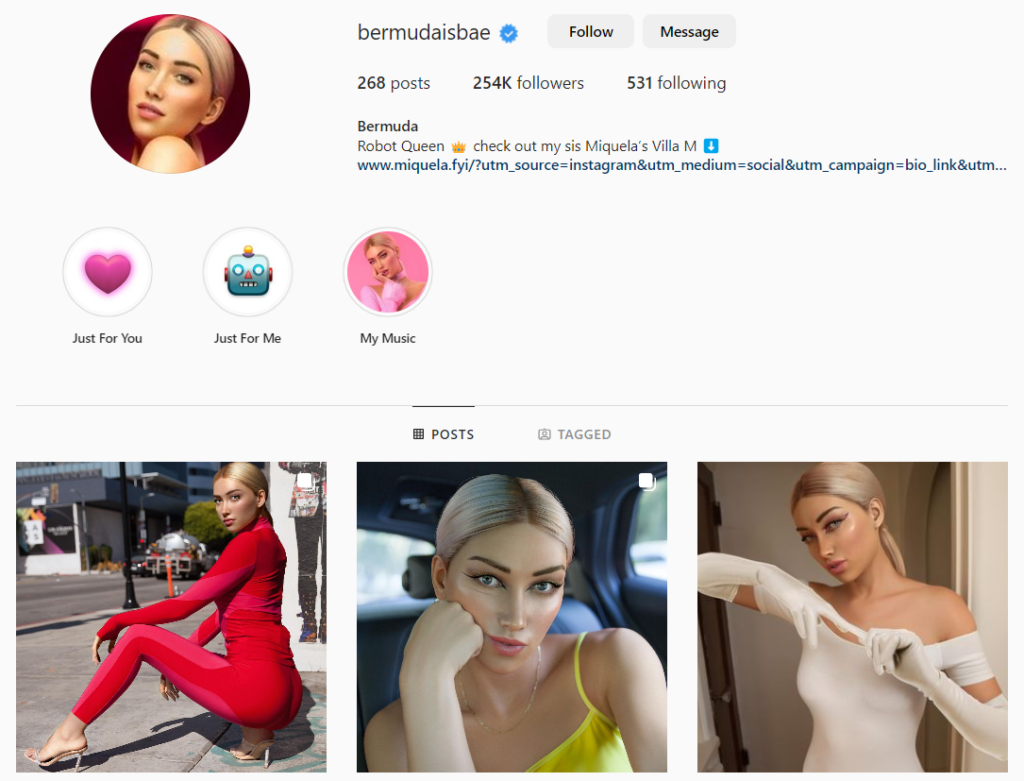
Bermuda is a pop star who is famous for her cutting-edge and futuristic look. Bermuda, which was founded by the firm Brud, has a growing fan base and multiple top hits, including “Soda” and “Lauren.” Bermuda, which has over 430,000 Instagram followers, has collaborated with several businesses, such as Samsung and Puma, and has even performed at music festivals.
Case Studies: Successful Meta Influencer Campaigns in Action
Here are some examples of effective meta influencer campaigns:
- Fortnite x Travis Scott: To organise a virtual concert experience within the game, the well-known online video game Fortnite teamed up with musician Travis Scott in April 2020. Over 27 million people attended the event, which also created a lot of attention on social media. The partnership showed how meta influencers can reach large audiences in novel ways.
- Balmain x Shudu: To promote their latest collection, luxury clothing company Balmain teamed up with online influencer Shudu in 2018. Shudu was photographed wearing Balmain clothing in highly stylized pictures for the campaign, which produced an eye-catching, otherworldly style that received a lot of attention on social media.
- KFC x Colonel Sanders: Colonel Sanders and KFC teamed up in 2020 to promote KFC’s new plant-based chicken sandwich. Colonel Sanders is a digital influencer. The advertisement included an amusing and interesting video of a fictional Colonel Sanders extolling the virtues of the new sandwich. To generate buzz and curiosity for the new product, the campaign was successful.
- Lil Miquela x Calvin Klein: In 2018, online influencer Lil Miquela teamed up with the clothing line Calvin Klein for a campaign in which she wore the company’s newest collection of underwear. The campaign was quite effective in spreading brand awareness and creating conversations on social media. It also helped establish Calvin Klein as a pioneer in digital marketing.
- Lil Miquela x Samsung: In 2019, Samsung collaborated on a campaign to highlight the features of their new Galaxy S10 smartphone. Lil Miquela is a digital influencer. Lil Miquela utilised her phone to shoot excellent images for the campaign’s Instagram stories and interact with her followers. In addition to showcasing the capabilities and advantages of the new product, the campaign also helped establish Samsung as a pioneer in cutting-edge technology.
- Gucci x Zumi Rosow: To advertise their newest collection of handbags, luxury clothing company Gucci teamed up with online influencer Zumi Rosow in 2019. The advertising campaign, which included highly styled pictures of Zumi sporting the bags, created a lot of buzz on social media. Gucci was successfully positioned as a leader in fashion marketing through the campaign, which also highlighted the usefulness and allure of their new product.
These examples demonstrate how virtual influencers can be very successful at promoting a variety of goods and businesses as well as how they can be employed to develop incredibly innovative and compelling marketing strategies. The quality of the material, the emotional connection the influencers can forge with their following, and the overall strategic approach to marketing and branding are all crucial considerations for the success of these initiatives.
The Future of Influencer Marketing: AI Influencers on Instagram
In the upcoming years, the influencer marketing environment is likely to shift as a result of the rise of AI (artificial intelligence) influencers on Instagram. Artificial intelligence-generated figures that mimic genuine human influencers in appearance and behaviour are known as AI influencers. To connect with people and promote brands in a manner comparable to that of human influencers, they are made utilising complex algorithms and machine-learning techniques. However, AI Influencers have advantages and disadvantages that should be considered.
Pros and Cons of Working with Meta and AI Influencers
Pros of Meta Influencers
Expertise: In the field of influencer marketing, meta-influencers are incredibly knowledgeable and experienced. They may offer insightful direction and counsel to both companies and influencers, which can enhance the general effectiveness of influencer marketing efforts.
Connections: Meta influencers frequently have extensive networks of other influencers and contacts in the industry. This can be helpful for marketers wishing to work with other influencers and create more effective campaigns.
Efficiency: Compared to working with individual influencers, working with a meta influencer can be more effective. By managing various influencers and ensuring that campaigns are carried out successfully, a meta influencer can contribute to the streamlining of the campaign process.
Authenticity: Because of more interest and enthusiasm, meta influencers can be considered as more authentic than any other category of influencers.
Innovation: Meta influencers frequently adopt emerging trends and technology first, giving them a unique view on how digital media and content production will develop in the future.
Cons of Meta Influencers
Limited Reach: A brand’s message may not reach as many individuals as it would like depending on the size and niche of the meta influencer’s audience.
Quality Consistency: There may be variances in the quality of the work produced by meta influencers because they collaborate with numerous brands and campaigns. Before it goes live, brands need to make sure their content meets their requirements.
Reputation: Any brands that have previously collaborated with a meta influencer may suffer if their reputation is tarnished as a result of a scandal or controversy.
Cost: Because meta influencers are still relatively new and developing, brands may only have a small pool of potential partners, which could increase the price of alliances and campaigns.
Limited monitoring and reporting: Because the metaverse is still a developing area, there may be restrictions on the tracking and reporting tools that can be used to evaluate the efficacy of campaigns utilising meta influencers.
Pros of AI Influencers
Cost-effective: Since AI influencers do not charge for their time or services, they are often less expensive to deal with than human influencers.
Consistent messaging: Because AI influencers are managed and programmed by a business, they can make sure that the message is the same throughout all material and campaigns, which can help to reinforce the brand’s identity and values.
High degree of control: Because brands can programme and modify the material to suit their objectives, they have high degrees of control over the branding and messaging of AI influencer campaigns.
Creativity: Working with AI influencers can give brands the creative freedom to experiment with unique and creative marketing strategies, such as leveraging virtual reality or other cutting-edge technologies.
Scalability: Because AI influencers are digital, they are extremely scalable because they can reach a vast audience without being constrained by region or availability.
Cons of AI Influencers
Lack of authenticity: Since AI influencers aren’t actual people, they might be missing the genuineness and human touch that many customers associate with influencer marketing.
Potential for backlash: Using AI influencers may be perceived by certain customers as being untrue or manipulative, which could result in unfavourable backlash and damage a brand’s reputation.
Limited emotional intelligence: Since AI influencers are unable to feel emotions, they may find it difficult to connect emotionally with audiences and establish the same level of rapport and trust that human influencers can.
Limited capacity for adaptation: Unlike human influencers, AI influencers may not be able to react to unforeseen events or shifts in the market or cultural context.
Technical issues: Because AI influencers rely on technology, there could be issues with it that affect how effective campaigns are.
How to Incorporate Meta and AI Influencers Into Your Marketing Strategy?
Increase brand recognition, engage your target audience, and boost sales by using meta and AI influencers in your marketing approach. To successfully use meta and AI influencers in your marketing plan, follow these steps:
Set Goals: Prior to choosing any influencers, it’s important to establish your campaign’s goals. Decide what you want to accomplish, whether it’s more revenue, better engagement, or more brand recognition.
Find Appropriate Influencers: Research to find influencers who share the ideals and objectives of your brand, such as meta influencers or AI influencers. To make sure they are a good fit for your company, examine their audience demographics, engagement rates, and previous campaigns.
Create a Strategy: After choosing the appropriate influencers, create a campaign strategy outlining the main points, the goals, and the deliverables for the influencers. Make sure the campaign fits with your brand’s overarching marketing plan and is appealing to your target market.
Focus on Content: Work with the influencers to produce high-quality material that is both on-brand and appeals to your target audience. Make sure the information is original, interesting, and contains a clear call to action.
Track progress: Track and evaluate the campaign’s outcomes, such as engagement levels, conversion rates, and brand awareness. Utilize this information to improve upcoming campaigns and make informed choices.
Maintain Compliance: Make sure your advertising campaigns abide by all rules and laws. To keep your audience’s trust, be honest about influencer sponsorships and disclosures.
Meta Influencers vs Micro-Influencers: Which One to Choose?
Your marketing objectives, target audience, and financial constraints will ultimately determine whether you should collaborate with meta-influencers or micro-influencers. To assist you in making an informed choice, the following are some significant distinctions between meta-influencers and micro-influencers:
Reach: Compared to micro-influencers, meta influencers often have a considerably larger fan base, which gives them the potential to reach a larger audience. Micro-influencers, on the other hand, frequently have a more attentive and focused following, which could result in higher conversion rates.
Cost: Meta influencers typically charge more fees than micro influencers due to their larger following. For smaller firms with tighter budgets, micro-influencers might be a more economical choice.
Authenticity: Because of their smaller audiences and intimate connections to them, micro-influencers are sometimes regarded by their followers as being more real and personable. Authenticity might be a challenge for meta influencers because of their huge and varied fan base.
Scalability: Meta influencers are perfect for large-scale efforts that want to reach a big audience because they have a wider reach. Micro-influencers could be more suited for regional campaigns or specialised audiences.
Quality of Content: Because meta influencers work with numerous businesses and campaigns, their content could be less individualised or of a lower calibre than that of micro influencers. Micro-influencers frequently spend more time and effort creating their content and interacting with their followers on a more personal level.
Tools and Resources to Find and Connect with Meta and AI Influencers
Platforms for finding influencers: Based on their audience size, engagement rate, and niche, platforms like AspireIQ, Upfluence, and Influencer.co enable brands to find and interact with meta and AI influencers. Additionally, these systems include tools for managing campaigns, tracking results, and providing email templates.
Social media monitoring software: Programs like Hootsuite, Sprout Social, and Mention enable businesses to keep an eye on social media discussions about their company, sector, or item. Brands can find suitable partners for collaboration with meta and AI influencers by monitoring pertinent hashtags and phrases.
Google Search Engine: Brands may use Google search to find meta and AI influencers in their sector. Brands may find bloggers, YouTubers, and social media stars who are influential in their business by searching for pertinent keywords and phrases.
Hashtag research tools: Brands may find out which hashtags are most popular in their business by using apps like Hashtagify and RiteTag. Brands may identify meta and AI influencers who are utilising these hashtags by focusing on them in their campaigns.
AI influencer platforms: AI-powered influencer analytics are provided by systems like HypeAuditor and InfluencerDB, which enable marketers to find and evaluate influencers based on the demographics, engagement rate, and audience legitimacy of their audience.
FAQs
Who are meta influencers? / What is meant by virtual influencer?
Meta influencers are human-created, human-controlled virtual influencers or avatars that only live in the virtual world.
Who is the most popular virtual influencer? / Who are the top metaverse influencers?
These are the top most popular virtual influencer:
1. Lil Miquela
2. Shudu
3. Lu do Magalu
4. Kyraonig
5.Guggimon
What are AI influencers?
Artificial intelligence (AI) influencers are fictional characters developed utilising computer-generated images and artificial intelligence technology who are able to carry out similar functions to actual human influencers, including product promotion, follower engagement, and content creation.
What is the difference between meta influencers vs ai influencers?
AI influencers are computer-generated virtual beings that use artificial intelligence technology to create content, connect with followers, and promote products, whereas meta influencers are avatars controlled by people.
What are the 4 types of influencers?
The 4 types of influencers are:
1. Nano influencers, 1k to 10k Followers
2. Micro influencers, 10k to 100k Followers
3. Macro influencers, 100k to 1M Followers
4. Meta influencers, 1M+ Followers
Who made Kyra Meta influencer?
Kyra is a virtual influencer created by Himanshu Goel and his colleagues at influencer marketing agency TopSocial India. Kyra has significant following social media, with over 217,000 people following her on Instagram.
Who is the first meta influencer?
Kyra is India’s first metaverse influencer, has started a new trend of travelling, and made people think about the boundaries between ‘reality’ and ‘virtual world’. Globally, Lil Miquela is one of the first meta/virtual influencer to be created. It is the brainchild of LA based start up Brud who specialise in artificial intelligence and robotics.
Conclusion
In conclusion, the landscape of influencer marketing is shifting as a result of the rise of meta influencers and the appearance of AI influencers on Instagram. Brands have the opportunity to connect with their target consumers in novel ways thanks to these new types of influencers. Working with meta and AI influencers has both benefits and drawbacks, but it is impossible to dismiss their ability to increase brand recognition, engagement, and sales.
Brands may leverage the potential of cutting-edge technologies and trends to advance their businesses by incorporating meta and AI influencers into their marketing strategy. It will be fascinating to watch how marketers use these new influencers to give their consumers more genuine and engaging experiences as the influencer marketing sector continues to develop.
It’d be great to see when virtual influencers will come up with their own D2C brands and merchandise launches. If you are looking to create your own meta influencer or want to monetise it’s social media following, try Blinkstore to launch its own brand and take on the new AI driven virtual world with something fresh and unique.
